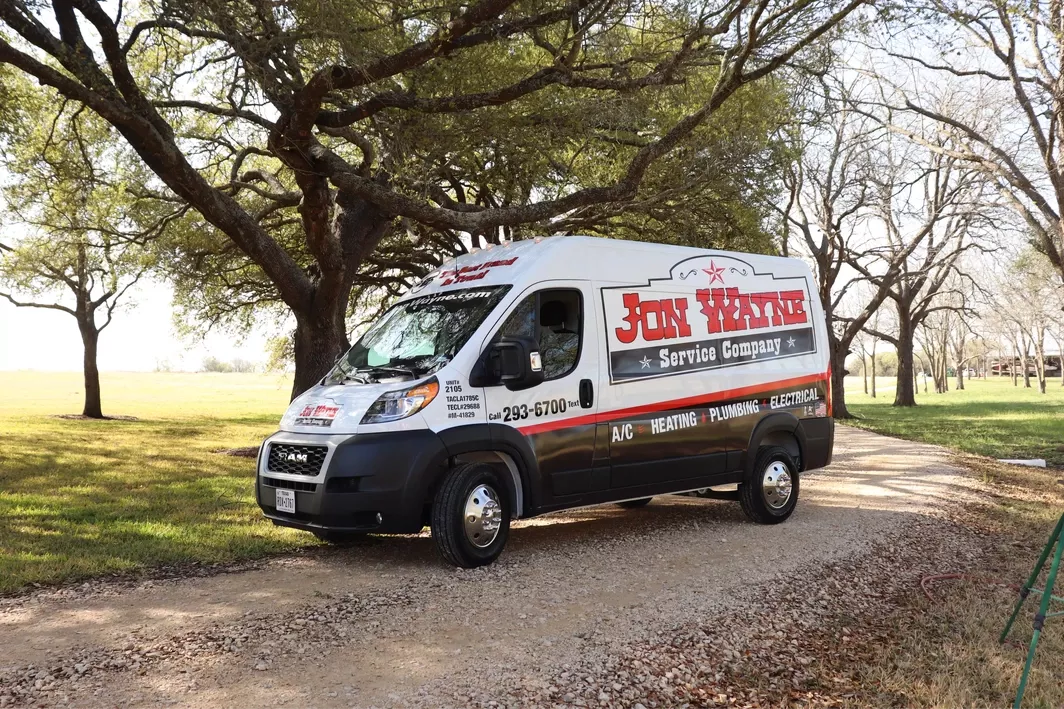What’s the Cost of a Water Heater Installation in San Antonio?
The cost to install a water heater can be as low as $750 or as high as $10,000.
We know—that’s a really huge range.
The reason the price can vary so much is the cost of an installation depends on several factors, including:
- The type of water heater you choose
- The fuel type of the water heater
- The heating capacity of the water heater
- The contractor you hire
Let’s look at how each of these factors can determine the overall price of your water heater installation.
Want a quote on the cost of installing a water heater in your home? We’ll give you upfront, honest pricing on the cost of installing a standard or tankless water heater.
Factor #1: The type of water heater you choose
The most significant factor that affects the cost of a water heater installation is whether you choose a standard tank water heater or a whole-home tankless unit.
Let’s look at how the two types of water heaters compare in price:
- The cost to install a standard water heater ranges from $750 to $3,500
- The cost to install a tankless water heater ranges from $4,500 to $10,000
Tankless water heaters are more expensive because the equipment costs more, and the installation requires more work, which raises the overall price.
After seeing the big price difference, you’re probably wondering why anyone would choose a tankless water heater.
The main reason homeowners choose a tankless water heater is because of the long-term savings it provides. A tankless water heater only heats water as needed instead of constantly heating and storing large amounts of hot water in a tank. As a result, tankless water heaters use less energy than tank units, which lowers your monthly energy bills.
Besides the benefit of long-term operational savings, a tankless unit also provides benefits such as:
- Longer equipment lifespan: A well-maintained tankless system can last twice as long as a tank water heater (20 years compared to 10 years).
- Compact design: Without a large storage tank, a tankless system can be installed in a closet or on a wall, freeing up floor space.
- Endless supply of hot water: While a standard water heater can run out of hot water, a tankless unit can deliver an infinite amount of hot water (as long as the hot water demand does not exceed the unit’s flow rate—more on that below).
If you have questions about which water heater type to choose, consult a plumbing expert. They will help you determine the best option for your home based on your budget and hot water needs.
Factor #2: The fuel type of the water heater
For tankless and standard water heaters, natural gas units cost more to install than electric ones.
However, a gas water heater usually costs less to operate than an electric water heater. Investing in a gas unit will lower monthly energy costs, saving you money over time.
If you only have electricity access and want to upgrade to a natural gas water heater, there will be additional costs for the installation, such as adding gas lines. You’ll want to consult with a plumbing professional to determine if the long-term savings of a gas unit can make up for its higher installation cost.
Factor #3: The heating capacity of the water heater
Heating capacity refers to how much hot water a water heater can provide at once. The more heating capacity a water heater has, the more expensive it will be.
For standard water heaters, the heating capacity is measured by the tank’s storage capacity and first-hour rating. We’ll explain both below.
- Tank storage capacity is simply how much hot water the tank will hold, usually ranging from 50 to 80 gallons for a residential unit.
- The first-hour rating measures how many gallons of hot water a tank can provide per hour, starting with a tank full of hot water. For a standard water heater, you want a tank water heater with a first-hour rating that matches the maximum amount of hot water (in gallons) you plan on using at one time.
The plumber you hire for the installation will help you calculate which tank size and first-hour rating will serve your family’s hot water needs.
For tankless water heaters, heating capacity is determined by flow rate. Flow rate is the number of gallons of hot water a tankless unit can deliver at one time. The higher the flow rate of a tankless unit, the more hot-water appliances you’ll be able to use simultaneously.
A plumber can help you calculate your tankless unit’s needed flow rate based on how many appliances you’ll use at once (such as running the dishwasher, washing machine, and shower simultaneously).
Factor #4: The contractor you hire
Experienced, high-quality plumbing professionals usually charge more for their services, but they also take the time to make sure your new water heater is installed correctly.
Beware of plumbers who offer significantly lower installation prices than competitors. These plumbers will often rush the installation, which means they’ll likely cut corners and make mistakes that could reduce your water heater’s efficiency and lead to costly repairs.
To verify the experience and overall quality of a contractor, make sure:
- The plumber is licensed in the state of Texas
- The plumber has been in business for at least 10 years
- The plumber offers upfront, transparent pricing and solid guarantees on their water heater installations
- The plumber has good customer reviews on sites like Google, Better Business Bureau, and Facebook
A plumbing contractor who meets the criteria above will likely do high-quality work, and you’ll have a good experience working with them.
Want a quote to install a water heater in your San Antonio home?

